Military ‘coup’ in Turkey
Army declares martial law; Erdogan vows to quash takeover bid .
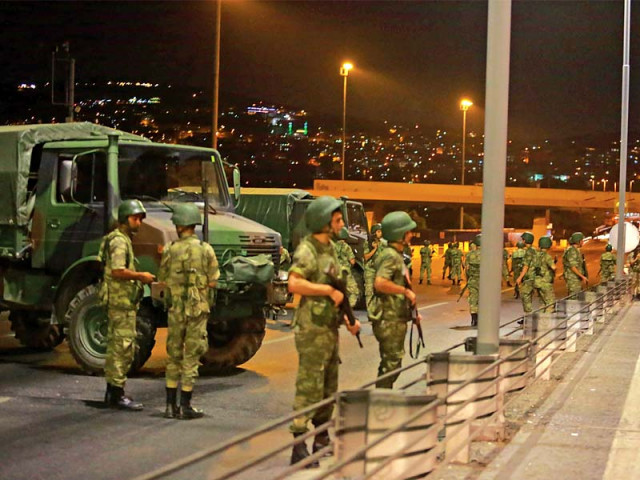
Turkish soldiers block access to the Bosphorus bridge, which links Istanbul’s European and Asian sides. PHOTO: REUTERS
Jets screeched low overhead in the capital, while citizens rushed for the safety of their homes. Airports were shut, access to Internet social media sites was cut off, and troops sealed off the two bridges over the Bosphorus in Istanbul, one of which was still lit up red, white and blue in solidarity with victims of the Bastille Day truck attack in France a day earlier. Television pictures showed tanks deployed outside Ataturk airport in Istanbul. Reports said flights into the airport had been halted.
State broadcaster TRT said the military had declared martial law and a curfew, in a statement signed by a group calling itself the ‘Council for Peace in the Homeland’.
“The power in the country has been seized in its entirety,” said a military statement quoted by Turkish media. It said the coup had been launched “to ensure and restore constitutional order, democracy, human rights and freedoms and let the supremacy law in the country prevail, to restore order which was disrupted.”
“All our international agreements and commitments retain their validity,” the statement added. “We hope our good relations will continue with all countries in the world.”
The country would be run by the ‘peace council’ that would ensure the safety of the population, the statement said further.
The state-run Anadolu news agency said the chief of Turkey’s military staff was among people taken ‘hostage’ in the capital Ankara. CNN Turk also reported that hostages were being held at the military headquarters.
Prime Minister Yildirim, however, said the elected government remained in office. He claimed a group within Turkey’s military had attempted to overthrow the government and security forces have been called in to ‘do what is necessary’. “Some people illegally undertook an illegal action outside of the chain of command,” Yildirim said in comments broadcast by private channel NTV.
“The government elected by the people remains in charge. This government will only go when the people say so.” Those behind the attempted coup would pay the highest price, he added.
“We will overcome this,” Erdogan said, speaking by mobile phone to the Turkish sister station of CNN. He called on his followers to take to the streets to defend his government and said the coup plotters would pay a heavy price. US Secretary of State John Kerry and Russian Foreign Minister Sergei Lavrov, speaking jointly after talks in Moscow, said they hoped bloodshed would be avoided. Neighbouring Greece said it was following the situation closely, while US President Barack Obama has been briefed.
A senior EU source monitoring the situation said: “It looks like a relatively well orchestrated coup by a significant body of the military, not just a few colonels. They’ve got control of the airports and are expecting control over the TV station imminently. They control several strategic points in Istanbul. Given the scale of the operation, it is difficult to imagine they will stop short of prevailing. It’s not just a few colonels.”
One European diplomat was dining with the Turkish ambassador to a European capital when guests were interrupted by the pinging of urgent news on their mobile phones. “This is clearly not some tinpot little coup. The Turkish ambassador was clearly shocked and is taking it very seriously,” the diplomat told Reuters as the dinner party broke up. “However it looks in the morning, this will have massive implications for Turkey. This has not come out of nowhere.”
If successful, the overthrow of President Erdogan, who has ruled Turkey since 2003, would be one of the biggest shifts in power in the Middle East in years, transforming one of the most important US allies in the region.
After serving as prime minister from 2003, Erdogan was elected president in 2014 with plans to alter the constitution to give the previously ceremonial presidency far greater executive powers. His Justice and Development Party (AKP), with roots in Islamism, has long had a strained relationship with the military and nationalists in a state that was founded on secularist principles after World War One.
The military has a history of mounting coups to defend secular principles, but has not seized power directly since 1980.
Published in The Express Tribune, July 16th, 2016.

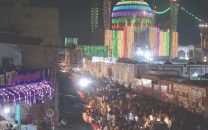
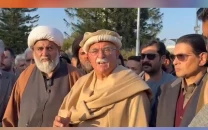

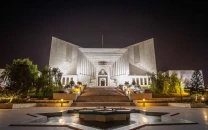
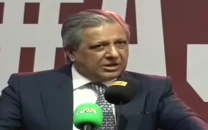
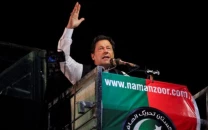












COMMENTS
Comments are moderated and generally will be posted if they are on-topic and not abusive.
For more information, please see our Comments FAQ